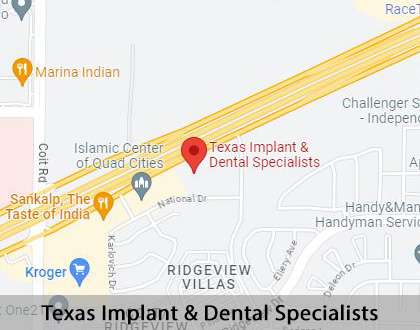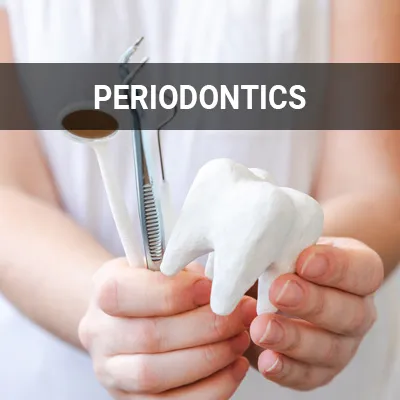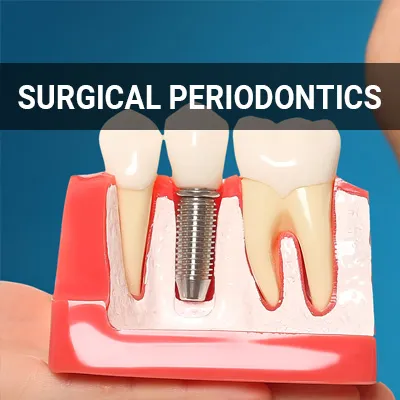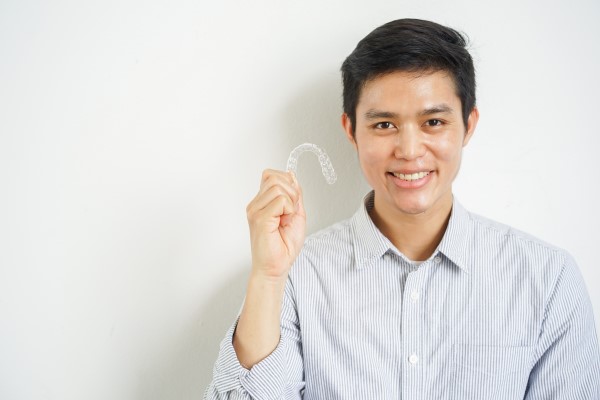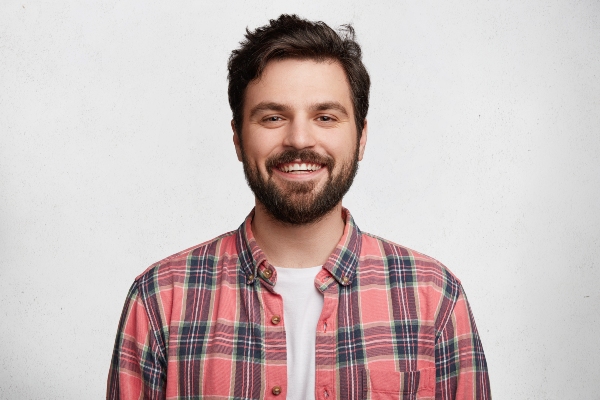Sleep Apnea Plano, TX
Sleep apnea treatment can help patients wake up feeling fully refreshed and well-rested. If you struggle with snoring while asleep, you may benefit from a sleep apnea screening. Sleep apnea is one of the most common sleep-related disorders. We can help prevent snoring from interrupting sleep, among other issues that can affect one's health.
Sleep apnea treatment is available at Texas Implant & Dental Specialists in Plano and the surrounding area. Get the rest you deserve. Call us today at (972) 535-6555 to schedule an appointment or learn more about our services.
Understanding Sleep Apnea
According to the Mayo Clinic, sleep apnea is a potentially severe sleep disorder where patients experience intermittent breathing in their sleep. There are three main types of sleep apnea: obstructive sleep apnea, central sleep apnea, and complex sleep apnea syndrome. Obstructive sleep apnea (OSA) is the most common form of sleep apnea and the most common sleep-related breathing disorder. It occurs when the throat muscles relax and block the patient's airway during sleep. Snoring is one of the most noticeable characteristics of obstructive sleep apnea.
“According to the Mayo Clinic, sleep apnea is a potentially severe sleep disorder where patients experience intermittent breathing in their sleep.”
Common Causes of Sleep Apnea
According to WebMD, the most common cause of obstructive sleep apnea in adults is excess body weight since being overweight increases the chance of having extra soft tissue in the back of the throat. When the throat and tongue muscles are more relaxed during sleep, the soft tissue may cause the airway to become blocked. Over half of people with obstructive sleep apnea are either overweight or obese.
Enlarged tonsils or adenoids and certain dental conditions can cause obstructive sleep apnea in children. However, less common causes include a tumor or growth in the airway and certain congenital abnormalities. Untreated obstructive sleep apnea can lead to serious complications in patients of any age, ranging from accidents to cardiovascular disease and premature death. As such, immediate treatment is essential for one's health.
“Untreated obstructive sleep apnea can lead to serious complications in patients of any age, ranging from accidents to cardiovascular disease and premature death.”
Symptoms of Sleep Apnea
Common symptoms of obstructive sleep apnea include:
- Daytime sleepiness or fatigue
- Dry mouth or sore throat upon waking
- Gastroesophageal reflux disease (GERD)
- Headaches in the morning
- High blood pressure
- Night sweats
- Restlessness during sleep
- Trouble concentrating, forgetfulness, depression, or crankiness
- Waking up often in the middle of the night to pee
Many of the above symptoms are also common to central sleep apnea. In any case, patients' bedmates will often notice their obstructive sleep apnea before they do.
“… patients’ bedmates will often notice their obstructive sleep apnea before they do.”
Check out what others are saying about our dental services on Yelp: Sleep Apnea in Plano, TX
Risk Factors for Sleep Apnea
Obstructive sleep apnea occurs when a person's airway is blocked while they are asleep. There are several factors that may increase a person's risk of blockage and obstructive sleep apnea. These include:
- Anatomical Characteristics. Both the size and positioning of one’s jaw, neck, tongue, tonsils, and other tissue near the back of the throat have a direct impact on airflow.
- Cigarette Smoking. Patients who smoke, especially heavily, have been found to have obstructive sleep apnea at a higher rate than those who do not.
- Family History. Patients are more likely to develop obstructive sleep apnea if they have one or more close relatives with the condition.
- Hormone Abnormalities. Certain hormone conditions, such as hypothyroidism and acromegaly, may cause swelling of the tissue near the airway. Alternatively, they may contribute to a person’s risk of obesity.
- Nasal Congestion. People with a limited ability to breathe through the nose are more likely to experience obstructive sleep apnea.
- Obesity. Being overweight may contribute to up to 60% of obstructive sleep apnea cases, as obesity is directly correlated with an anatomical narrowing of the airway.
- Sedative Use. The use of sedatives, including alcohol, can cause tissue in the throat to relax, which facilitates airway obstruction.
- Sleeping on the Back. Sleeping on one’s back makes it easier for tissue to collapse around the airway, facilitating blockages.
“Obstructive sleep apnea is caused by a person’s airway being blocked while they are asleep.”
Questions Answered on This Page
Q. What are some signs of sleep apnea?
Q. What are some of the risk factors for sleep apnea?
Q. How is sleep apnea treated?
People Also Ask
Q. What treatments do periodontists offer?
Q. What are the types of preventative care?
Q. Do I need surgical periodontics?
Treatments for Sleep Apnea
Milder cases of obstructive sleep apnea respond well to lifestyle changes, such as:
- Avoiding sedatives
- Avoiding sleeping on one’s back
- Exercising regularly
- Limiting alcohol intake
- Losing weight
- Smoking cessation
- Using a nasal decongestant or allergy medications
If the above measures are not sufficient or if the patient has moderate to severe obstructive sleep apnea, other treatment methods are available. For example, certain oral appliances can help open up a blocked airway. In severe cases, surgery may be necessary.
“… certain devices can help open up a blocked airway.”
Frequently Asked Questions
Q. How common is obstructive sleep apnea?
A. According to the American Academy of Dental Sleep Medicine, obstructive sleep apnea affects approximately 54 million adults in the United States. Obstructive sleep apnea is the most common form of sleep apnea. Other forms include central sleep apnea and complex sleep apnea syndrome.
Q. What will happen if I do not treat my obstructive sleep apnea?
A. If left untreated, obstructive sleep apnea can cause excessive daytime fatigue, memory loss, and morning headaches. It may also increase the risk of several systemic health issues, including but not limited to type 2 diabetes and coronary artery disease. As such, treating obstructive sleep apnea is crucial to one's overall health.
Q. How can an oral appliance help me with my obstructive sleep apnea?
A. An oral appliance is a custom-made device that you wear while you sleep. It helps with obstructive sleep apnea by keeping the airway open and unobstructed by supporting the jaw in a forward position. This prevents the upper airway from collapsing and blocking the airway.
Q. How can periodontists help with obstructive sleep apnea?
A. Periodontists can screen patients for obstructive sleep apnea and evaluate the airway. They can also refer patients to a physician for further evaluation and diagnosis. When necessary, periodontists can also write a prescription for oral appliance therapy.
Q. Can any periodontist help me with my obstructive sleep apnea?
A. No. periodontists must be educated in dental sleep medicine to provide safe, quality care with oral appliance therapy. We can help.
Start Feeling Better – Visit Us Today
By visiting us as soon as possible, our team can help get you the professional treatment you need. Instead of waiting around and allowing the symptoms to get worse, we can provide you with treatment options.
Definitions
Call Us Today
Sleep apnea can disrupt your everyday life. We at Texas Implant & Dental Specialists can help. Call us today at 972-535-6555 to schedule an appointment or learn more about our services.
Helpful Related Links
- American Academy of Periodontology (AAP). American Academy of Periodontology (AAP). 2023
- Center for Disease Control and Prevention (CDC), Periodontal Disease Page. Center for Disease Control and Prevention (CDC), Periodontal Disease Page. 2023
- WebMD, What Is a Periodontist?. WebMD, What Is a Periodontist?. 2023
About our business and website security
- Texas Implant & Dental Specialists was established in 2007.
- We accept the following payment methods: American Express, Cash, Check, Discover, MasterCard, and Visa
- We serve patients from the following counties: Collin County, Denton County and Dallas County
- We serve patients from the following cities: Plano, Frisco, Allen, McKinney, Garland, Richardson, Prosper, Wylie, Murphy, and Dallas
- Norton Safe Web. View Details
- Trend Micro Site Safety Center. View Details
Back to top of Sleep Apnea

